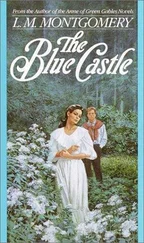Lucy Montgomery - The Golden Road
Здесь есть возможность читать онлайн «Lucy Montgomery - The Golden Road» весь текст электронной книги совершенно бесплатно (целиком полную версию без сокращений). В некоторых случаях можно слушать аудио, скачать через торрент в формате fb2 и присутствует краткое содержание. Жанр: Детская проза, на английском языке. Описание произведения, (предисловие) а так же отзывы посетителей доступны на портале библиотеки ЛибКат.
- Название:The Golden Road
- Автор:
- Жанр:
- Год:неизвестен
- ISBN:нет данных
- Рейтинг книги:4 / 5. Голосов: 1
-
Избранное:Добавить в избранное
- Отзывы:
-
Ваша оценка:
- 80
- 1
- 2
- 3
- 4
- 5
The Golden Road: краткое содержание, описание и аннотация
Предлагаем к чтению аннотацию, описание, краткое содержание или предисловие (зависит от того, что написал сам автор книги «The Golden Road»). Если вы не нашли необходимую информацию о книге — напишите в комментариях, мы постараемся отыскать её.
The Golden Road — читать онлайн бесплатно полную книгу (весь текст) целиком
Ниже представлен текст книги, разбитый по страницам. Система сохранения места последней прочитанной страницы, позволяет с удобством читать онлайн бесплатно книгу «The Golden Road», без необходимости каждый раз заново искать на чём Вы остановились. Поставьте закладку, и сможете в любой момент перейти на страницу, на которой закончили чтение.
Интервал:
Закладка:
Felicity followed her and recited her selection without haste, without rest, and absolutely without any expression whatever. But what mattered it how she recited? To look at her was sufficient. What with her splendid fleece of golden curls, her great, brilliant blue eyes, her exquisitely tinted face, her dimpled hands and arms, every member of the audience must have felt it was worth the ten cents he had paid merely to see her.
The Story Girl followed. An expectant silence fell over the room, and Mr. Perkins' face lost the look of tense anxiety it had worn all the evening. Here was a performer who could be depended on. No need to fear stage fright or forgetfulness on her part. The Story Girl was not looking her best that night. White never became her, and her face was pale, though her eyes were splendid. But nobody thought about her appearance when the power and magic of her voice caught and held her listeners spellbound.
Her recitation was an old one, figuring in one of the School Readers, and we scholars all knew it off by heart. Sara Ray alone had not heard the Story Girl recite it. The latter had not been drilled at practices as had the other pupils, Mr. Perkins choosing not to waste time teaching her what she already knew far better than he did. The only time she had recited it had been at the "dress rehearsal" two nights before, at which Sara Ray had not been present.
In the poem a Florentine lady of old time, wedded to a cold and cruel husband, had died, or was supposed to have died, and had been carried to "the rich, the beautiful, the dreadful tomb" of her proud family. In the night she wakened from her trance and made her escape. Chilled and terrified, she had made her way to her husband's door, only to be driven away brutally as a restless ghost by the horror-stricken inmates. A similar reception awaited her at her father's. Then she had wandered blindly through the streets of Florence until she had fallen exhausted at the door of the lover of her girlhood. He, unafraid, had taken her in and cared for her. On the morrow, the husband and father, having discovered the empty tomb, came to claim her. She refused to return to them and the case was carried to the court of law. The verdict given was that a woman who had been "to burial borne" and left for dead, who had been driven from her husband's door and from her childhood home, "must be adjudged as dead in law and fact," was no more daughter or wife, but was set free to form what new ties she would. The climax of the whole selection came in the line,
"The court pronounces the defendant—DEAD!" and the Story Girl was wont to render it with such dramatic intensity and power that the veriest dullard among her listeners could not have missed its force and significance.
She swept along through the poem royally, playing on the emotions of her audience as she had so often played on ours in the old orchard. Pity, terror, indignation, suspense, possessed her hearers in turn. In the court scene she surpassed herself. She was, in very truth, the Florentine judge, stern, stately, impassive. Her voice dropped into the solemnity of the all-important line,
"'The court pronounces the defendant—'"
She paused for a breathless moment, the better to bring out the tragic import of the last word.
"DEAD," piped up Sara Ray in her shrill, plaintive little voice.
The effect, to use a hackneyed but convenient phrase, can better be imagined than described. Instead of the sigh of relieved tension that should have swept over the audience at the conclusion of the line, a burst of laughter greeted it. The Story Girl's performance was completely spoiled. She dealt the luckless Sara a glance that would have slain her on the spot could glances kill, stumbled lamely and impotently through the few remaining lines of her recitation, and fled with crimson cheeks to hide her mortification in the little corner that had been curtained off for a dressing-room. Mr. Perkins looked things not lawful to be uttered, and the audience tittered at intervals for the rest of the performance.
Sara Ray alone remained serenely satisfied until the close of the concert, when we surrounded her with a whirlwind of reproaches.
"Why," she stammered aghast, "what did I do? I—I thought she was stuck and that I ought to prompt her quick."
"You little fool, she just paused for effect," cried Felicity angrily. Felicity might be rather jealous of the Story Girl's gift, but she was furious at beholding "one of our family" made ridiculous in such a fashion. "You have less sense than anyone I ever heard of, Sara Ray."
Poor Sara dissolved in tears.
"I didn't know. I thought she was stuck," she wailed again.
She cried all the way home, but we did not try to comfort her. We felt quite out of patience with her. Even Cecily was seriously annoyed. This second blunder of Sara's was too much even for her loyalty. We saw her turn in at her own gate and go sobbing up her lane with no relenting.
The Story Girl was home before us, having fled from the schoolhouse as soon as the programme was over. We tried to sympathize with her but she would not be sympathized with.
"Please don't ever mention it to me again," she said, with compressed lips. "I never want to be reminded of it. Oh, that little IDIOT!"
"She spoiled Peter's sermon last summer and now she's spoiled your recitation," said Felicity. "I think it's time we gave up associating with Sara Ray."
"Oh, don't be quite so hard on her," pleaded Cecily. "Think of the life the poor child has to live at home. I know she'll cry all night."
"Oh, let's go to bed," growled Dan. "I'm good and ready for it. I've had enough of school concerts."
CHAPTER XIX. BY WAY OF THE STARS
But for two of us the adventures of the night were not yet over. Silence settled down over the old house—the eerie, whisperful, creeping silence of night. Felix and Dan were already sound asleep; I was drifting near the coast o' dreams when I was aroused by a light tap on the door.
"Bev, are you asleep?" came in the Story Girl's whisper.
"No, what is it?"
"S-s-h. Get up and dress and come out. I want you."
With a good deal of curiosity and some misgiving I obeyed. What was in the wind now? Outside in the hall I found the Story Girl, with a candle in her hand, and her hat and jacket.
"Where are you going?" I whispered in amazement.
"Hush. I've got to go to the school and you must come with me. I left my coral necklace there. The clasp came loose and I was so afraid I'd lose it that I took it off and put it in the bookcase. I was feeling so upset when the concert was over that I forgot all about it."
The coral necklace was a very handsome one which had belonged to the Story Girl's mother. She had never been permitted to wear it before, and it had only been by dint of much coaxing that she had induced Aunt Janet to let her wear it to the concert.
"But there's no sense in going for it in the dead of night," I objected. "It will be quite safe. You can go for it in the morning."
"Lizzie Paxton and her daughter are going to clean the school tomorrow, and I heard Lizzie say tonight she meant to be at it by five o'clock to get through before the heat of the day. You know perfectly well what Liz Paxton's reputation is. If she finds that necklace I'll never see it again. Besides, if I wait till the morning, Aunt Janet may find out that I left it there and she'd never let me wear it again. No, I'm going for it now. If you're afraid," added the Story Girl with delicate scorn, "of course you needn't come."
Afraid! I'd show her!
"Come on," I said.
We slipped out of the house noiselessly and found ourselves in the unutterable solemnity and strangeness of a dark night. It was a new experience, and our hearts thrilled and our nerves tingled to the charm of it. Never had we been abroad before at such an hour. The world around us was not the world of daylight. 'Twas an alien place, full of weird, evasive enchantment and magicry.
Читать дальшеИнтервал:
Закладка:
Похожие книги на «The Golden Road»
Представляем Вашему вниманию похожие книги на «The Golden Road» списком для выбора. Мы отобрали схожую по названию и смыслу литературу в надежде предоставить читателям больше вариантов отыскать новые, интересные, ещё непрочитанные произведения.
Обсуждение, отзывы о книге «The Golden Road» и просто собственные мнения читателей. Оставьте ваши комментарии, напишите, что Вы думаете о произведении, его смысле или главных героях. Укажите что конкретно понравилось, а что нет, и почему Вы так считаете.





